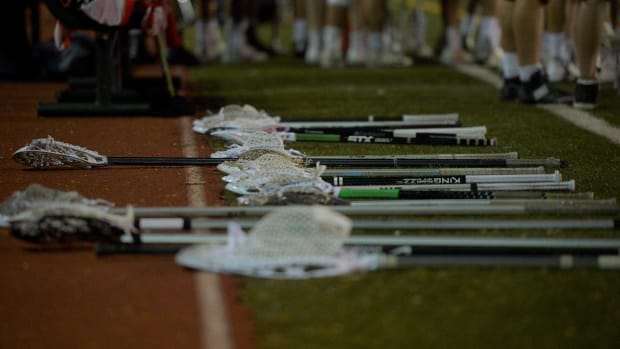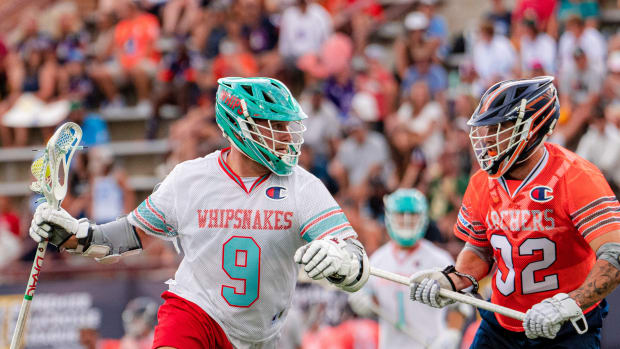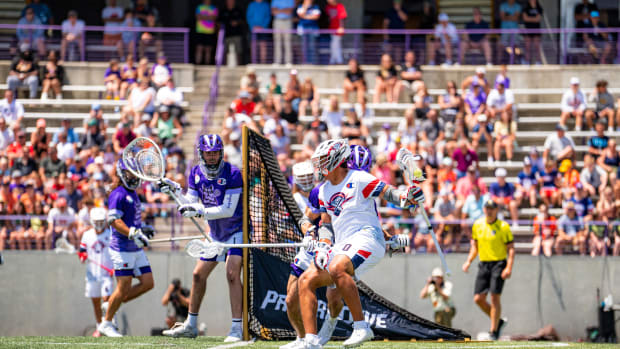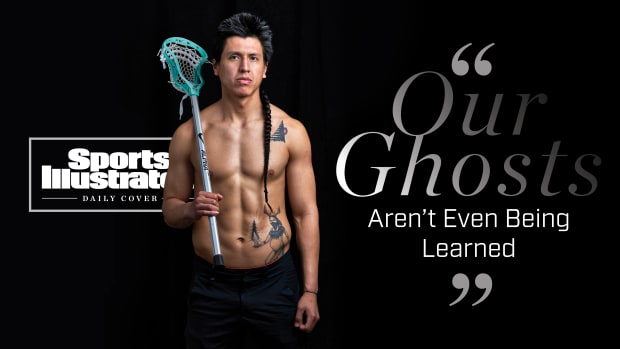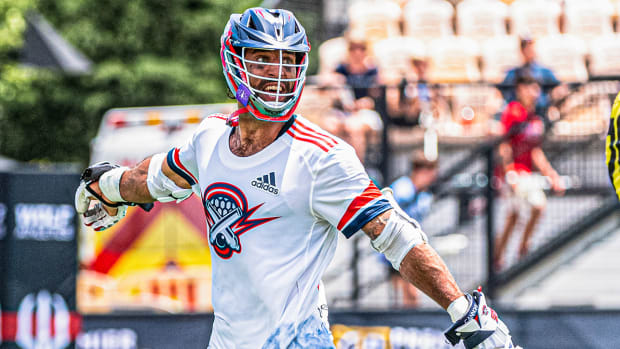
'Fate of a Sport' Details Complex Nature of Paul Rabil's Relationship with the PLL
On Aug. 1, 2020, Paul Rabil and his Atlas Lacrosse Club teammates dropped their third consecutive contest in the Premier Lacrosse League’s Championship Series. After the defeat, Rabil, outdoor lacrosse’s all-time leading scorer, let members of Atlas know exactly what he thought of the result. “The bottom line is we played like f------ idiots in the second half,” he said. “Enough of this sob story. We’re just f------ better than the players, than the mistakes that we’re making...
“…We’re making f------ mistakes that we shouldn’t. F------ let that get away. What kind of competitors are we?”
Rabil’s expletive-laden post-game rant, of which the above quotes are merely an excerpt, ends with him smacking the water cooler sitting next to him, and tossing two sticks toward the middle of the room. Of all the scenes in ESPN Films’ latest documentary “Fate of a Sport,” which is now streaming on ESPN+ and will air on ESPN at 7 p.m. ET on Thursday, Sept. 15 and on ABC on Sunday, Sept. 18 at 1 p.m. ET, none feature Rabil more-heated than after his team’s 11–10 loss to Redwoods Lacrosse Club. The film, though, does more than merely chronicle Rabil throughout the final three seasons of his decorated 14-year professional career. Instead, among its themes, it frequently juxtaposes Rabil (the player) with Rabil (the league executive), illuminating some of the dynamics that arise when the league’s biggest star is also its co-founder.
“Fate of a Sport” details the origin story of the PLL, from Paul and his brother Mike raising capital and brokering an initial media rights deal with NBC, to the duo fighting off early lawsuits from Major League Lacrosse, the previously existing outdoor men’s lacrosse league at the time of the PLL’s creation, in 2019. It shows how the PLL navigated through the global COVID-19 pandemic (namely by staging the Championship Series) and how it has secured a recent four-year television contract with ESPN.
As the documentary tracks how the Rabil brothers launched the league in hopes of changing the sport’s trajectory, it additionally touches on lacrosse’s indigenous origins and the modern perceptions it is trying to change. Plus, there’s plenty of on-field and post-game footage, for those interested in seeing some of the world’s best lacrosse slash, body-check, and score dynamic goals.
The film, which runs about 100 minutes, includes countless intimate conversations between the Rabil brothers as well as interviews with Patriots coach Bill Belichick, who was once the captain of the Wesleyan University lacrosse team, and NBA commissioner Adam Silver, who was a sounding board for Rabil throughout the league’s development, among others.
In November of 2018, less than a month after the league officially launched, Sports Illustrated reported on Rabil—“Lacrosse players talk about Paul Rabil in the same way that basketball players speak of LeBron James: as a mold-breaker, one whose unprecedented athletic gifts promise new levels of success and stardom,” the story opened—and the league’s promise in a package of stories about the next era of athletics. The feature’s art showed a picture of Rabil with the tagline, “Sport of the Future. League of the Future;” its headline wondered if a “new, barnstorming player-centric lacrosse league could serve as a template for other sports. That particular question remains opened-ended, but as the PLL wraps up its fourth season with its championship game on Sunday, having already emerged as the sport’s outdoor men’s lacrosse league, it’s clear lacrosse is forever changed. In large part because of the Rabil brothers, the fate of the sport is different now than it was even a half-decade ago.
